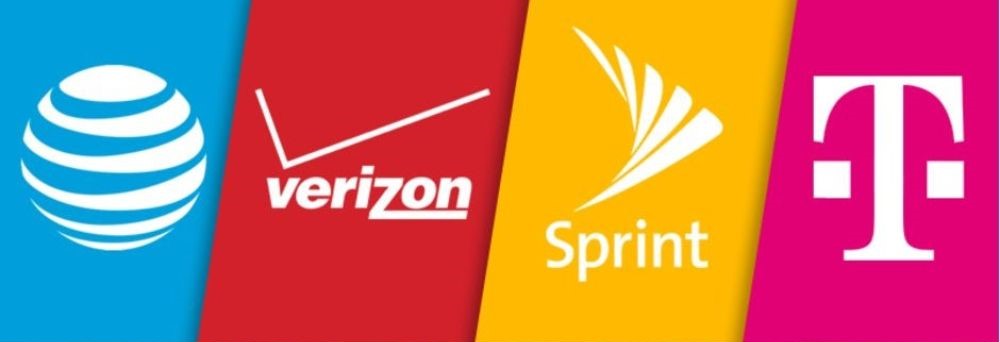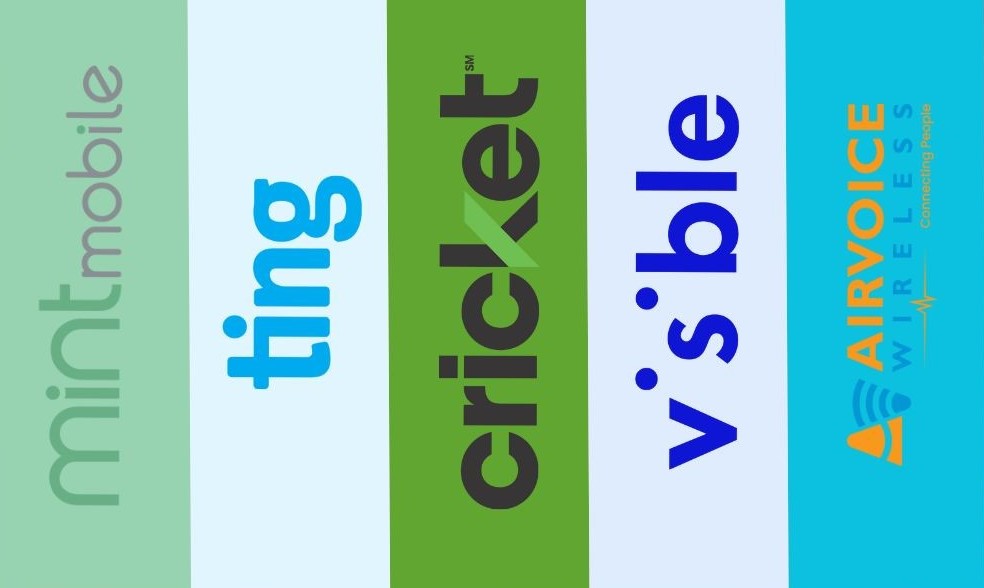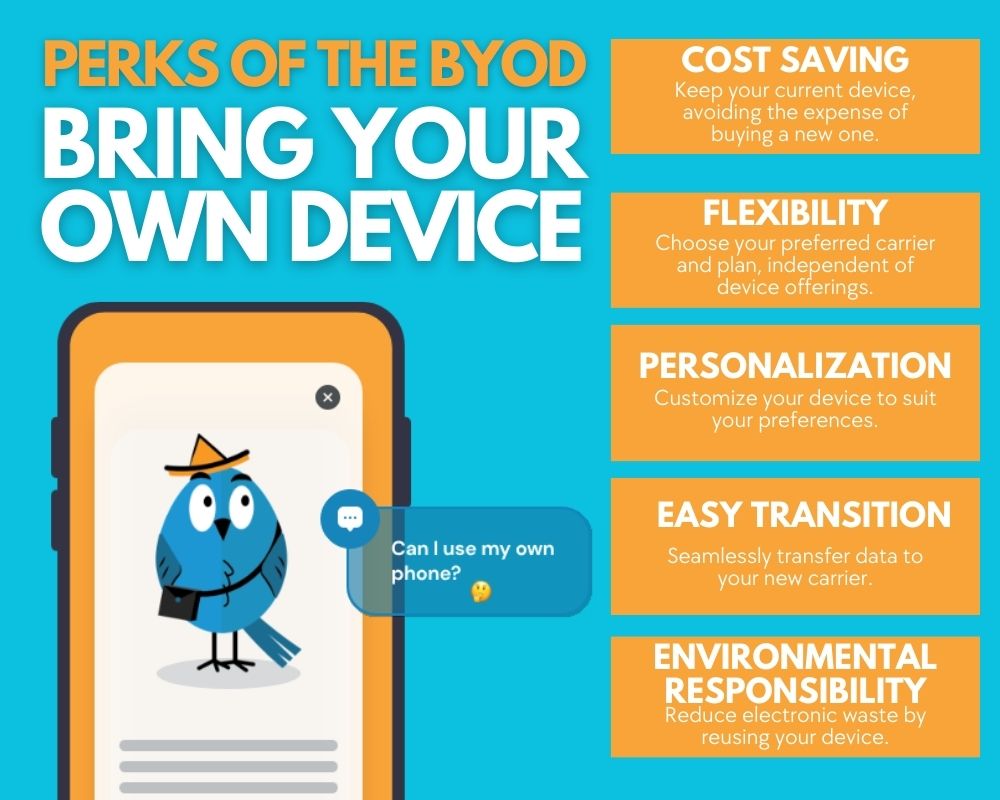
Finding the Right Balance: Saving on Connectivity in College
Importance of Selecting the Right Phone Plan for College Students
When you’re in college, the right phone plan is more than just a luxury; it’s a necessity for academic and social survival. Your phone acts as your scheduler, your alarm clock, your study assistant, and your connection to the world. So, picking a phone plan isn’t just about saving money – it’s about finding one that won’t let you down during a late-night study session or when you’re navigating a new city for an internship.
Factors to Consider When Choosing a Phone Plan
When you’re standing at the crossroads of connectivity and savings, a few factors will guide you to the right path. Choosing the right phone plan is a critical decision for college students, impacting their communication, budget management, and overall convenience. With various options available, it’s essential to consider several factors to ensure the chosen plan meets their needs effectively. Let’s delve deeper into each key factor to consider when choosing a phone plan for college students:
- Budget-Friendly Options: College students often have limited financial resources due to tuition fees, textbooks, and other expenses. Opting for a budget-friendly phone plan helps students manage their finances more effectively. Look for plans with affordable monthly rates, minimal extra fees, and options for prepaid or no-contract plans. This ensures students can avoid unexpected costs and stay within their budgetary constraints.
- Data Allowance: In today’s digital age, students heavily rely on smartphones for research, communication, and accessing educational materials. A plan with a sufficient data allowance is crucial to support these activities without incurring overage charges or experiencing slow internet speeds. Consider the amount of data offered in the plan and whether it aligns with the student’s usage patterns. Plans with unlimited data or generous data caps are ideal for students who frequently use data-intensive applications or stream content.
- Flexible Contracts: College life is dynamic, with students’ needs and circumstances often changing. Opting for phone plans with flexible contracts or no long-term commitments allows students to adapt their plans as needed without facing hefty termination fees. Look for plans that offer month-to-month billing or allow for easy plan adjustments, such as upgrading or downgrading data allowances or adding/removing features without penalties.
- Coverage and Network Reliability: Reliable connectivity is essential for college students, whether they’re attending classes, studying in dormitories, or exploring campus. Choosing a phone plan with robust coverage and network reliability ensures students can stay connected without experiencing dropped calls or slow data speeds. Research the network coverage of different providers in and around the college campus to determine which offers the best service. Consider factors such as signal strength, data speeds, and coverage indoors and outdoors.
- Additional Features and Benefits: Some phone plans offer additional features or benefits that can enhance the overall value for college students. Look for plans that include perks such as student discounts, free access to streaming services, unlimited texting, or international calling options. These extras can provide added convenience and savings for students, making the plan more appealing.
Spotlight on Oklahoma City’s Best Student Phone Plans
Major Network Providers in Oklahoma

In the vibrant plains of the Southwest, you’ll find a robust selection of major network providers ready to keep you connected. With Verizon Wireless’ far-reaching coverage, AT&T’s widespread network, T-Mobile’s competitive pricing, and Sprint’s generous plans, you’re spoilt for choice. Each offers a unique mix of reliability, speed, and perks, ensuring you’re just a call or click away from the resources and people that matter most. Be mindful that it’s essential to consider factors such as coverage, data allowances, additional perks, and any student discounts offered by these major network providers. Additionally, comparing the features and pricing of each plan can help students find the best option to suit their needs and budget. Below is a simple table comparing the best college student phone plans offered by major network providers:
|
Provider |
Plan Name |
Features |
Student Discounts |
Price Range (per month) |
|
AT&T |
Unlimited Starter |
Unlimited talk, text, and data (with speed limits) |
Yes |
$35 – $65 |
|
Verizon |
Start Unlimited |
Unlimited talk, text, and data |
Yes |
$30 – $70 |
|
T-Mobile |
Magenta |
Unlimited talk, text, and data with various perks |
Yes |
$40 – $70 |
|
Sprint |
Unlimited Basic |
Unlimited talk, text, and data with limited mobile hotspot |
Yes |
$35 – $60 |
Please note that the prices provided are approximate ranges and may vary based on factors such as the number of lines, additional features, and any promotional discounts available at the time of purchase. Additionally, student discounts may require verification of enrollment in a qualifying educational institution.
The Rise of MVNOs

With a keen focus on affordability and flexibility, Mobile Virtual Network Operators (MVNOs) are rapidly gaining ground among Oklahoma’s cost-conscious college crowd. These savvy operators piggyback on the expansive networks of the bigger players, delivering comparable coverage without the hefty price tag. They offer the sweet spot for students looking to trim their bills while still enjoying reliable service, which explains why they’re becoming an increasingly popular choice around campuses. Finding the best college student phone plans can depend on factors like coverage, data allowances, and budget. In Oklahoma, you can consider several MVNOs that offer competitive plans:
- Affordable Plans: Mint Mobile is known for offering some of the most budget-friendly plans in the market, especially for those who don’t need a lot of data.
- Flexible Options: They offer plans with varying data allowances, allowing customers to choose the option that best fits their needs and budget.
- Customizable Plans: Ting’s unique approach allows customers to customize their plans based on their usage. This can be beneficial for students who may have fluctuating data needs.
- Dual Network: Ting operates on both the T-Mobile and Verizon networks, providing customers with more coverage options, which can be particularly advantageous in areas where one network may have better coverage than the other.
- No Contracts: Ting operates on a no-contract basis, offering flexibility for students who may not want to commit to a long-term plan.
- Affordable Unlimited Plans: Cricket Wireless offers unlimited talk and text plans with various data options at affordable prices, making them a popular choice for students who need a lot of data.
- Family Plans: Cricket Wireless offers discounted family plans, which can be beneficial for students who want to share a plan with family members or roommates.
- Unlimited Data: Visible offers a single unlimited plan with unlimited talk, text, and data, making it an attractive option for students who rely heavily on their smartphones for streaming, gaming, or other data-intensive activities.
- Party Pay Discounts: Visible’s Party Pay feature allows customers to save money by joining a group with friends or family members. Each member gets their own separate bill, making it a convenient and cost-effective option for students.
- Flexible Plans: Airvoice Wireless offers a variety of prepaid plans with different data allowances, catering to students with varying usage needs and budgets.
- International Calling: Airvoice Wireless offers international calling options, which can be beneficial for students who need to stay in touch with family and friends abroad.
- Pay-As-You-Go Option: In addition to monthly plans, Airvoice Wireless also offers pay-as-you-go options, allowing students to only pay for what they use without being tied to a monthly contract.
|
MVNO |
Coverage |
Pricing |
Perks |
Multi-Line Plan |
|
T-Mobile network |
Affordable plans with varied data |
– Budget-friendly plans – Flexible data options |
No |
|
|
T-Mobile & Verizon networks |
Customizable plans based on usage |
– No-contract plans – Dual-network coverage |
No |
|
|
AT&T network |
Affordable unlimited plans |
– Extensive network coverage – Family plan discounts |
Yes |
|
|
Verizon network |
Single unlimited plan |
– Unlimited data, talk, and text -Party Pay discounts |
No |
|
|
AT&T network |
Various prepaid plans |
– Flexible plans with pay-as-you-go options – Unlimited international call |
Yes |
Comparing Prepaid vs. Contract Plans for Students
Diving into the prepaid vs. postpaid plan debate can feel like a college quiz you forgot to study for, but it’s simpler than it looks. Prepaid plans offer no surprises at the end of the month – you pay upfront, and when it’s gone, it’s gone, making it perfect for students on rigid budgets. On the flip side, contract plans often come with the lure of the latest phones and the promise of more data, which could be a boon if you’re a multi-device user or part of a group plan. But remember, a contract could lead to a test of your financial discipline every month.
|
Aspect |
Prepaid Plans |
Contract/Postpaid Plans |
|
Payment Method |
Pay in advance for services |
Pay after using services at the end of billing cycle |
|
Credit Check |
Typically not required |
Usually required |
|
Contract |
No long-term contracts |
Requires signing a contract for a specific term |
|
Flexibility |
More flexible, easier to switch plans/providers |
Less flexible, may incur penalties for early termination |
|
Features |
Fewer features and perks |
More features and perks |
|
Control Over Spending |
Users have better control over spending |
Users may have less control over spending |
|
Device Options |
Limited selection of devices, often pay full price upfront |
Often allows device financing over time |
|
Monthly Costs |
Generally lower monthly costs |
Generally higher monthly costs |
|
Overage Charges |
No overage charges, usage stops when credit is depleted |
May incur overage charges if usage exceeds plan limits |
|
Credit Requirements |
No credit check required, suitable for individuals with poor credit |
Credit check required, may require good credit score |
|
Recharging |
Need to recharge account regularly to maintain service |
No need to recharge, billed at the end of billing cycle |
|
Shared Plans |
Limited shared plan options |
Often offers shared plans for multiple lines |
The Scoop on Discounts and Deals
Hunting Down Student Discounts Amidst Competing Carriers
On the hunt for student discounts, your detective skills as a college student can lead to saving more than just a few bucks on your phone bill. Competition among carriers means special deals for students are out there, even if they’re not advertised front and center. Beyond the adverts, staying vigilant about limited-time promotions can uncover those hidden gems of savings that make all the difference. When comparing student discounts offered by different carriers, several factors should be considered to ensure you’re getting the best value for your money. Here are some key factors to keep in mind:
- Discount Amount: Compare the discounts offered by each carrier.
- Eligibility: Check if you meet the enrollment requirements.
- Plan Options: Choose a plan that suits your usage needs.
- Coverage: Ensure reliable network coverage in your area.
- Additional Benefits: Consider extras like international roaming.
- Contract Terms: Review contract terms and fees.
- Customer Service: Look for carriers with good support.
- Long-Term Value: Evaluate overall value beyond just the discount.
Group Plans for the Whole Gang
Pulling together your squad could score you major savings on a group plan. Whether you’re teaming up with dorm mates, close-knit study groups, or your family, carriers will often offer better rates for multiple lines. Splitting the bill not only lightens the load on individual wallets but also usually nets each of you more data to play with. It’s about staying connected and saving cash – and who doesn’t love the sound of that?
- Cost Savings: Multi-line plans typically offer discounted rates per line compared to individual plans. By pooling together with family members, roommates, or friends, you can split the cost of the plan, resulting in significant savings for each member.
- Shared Data Allowance: Multi-line plans often come with a shared data pool that all lines can draw from. This can be advantageous for college students who may not use as much data individually but can collectively benefit from a larger data allowance shared among multiple users.
- Convenience: Managing one account with multiple lines is more convenient than having separate accounts for each member. It simplifies bill payments, account management, and tracking usage, making it easier to stay organized, especially for busy college students.
- Family and Friends Connectivity: With a multi-line plan, family members or friends sharing the plan can enjoy seamless data connection and communication. This is particularly useful for coordinating schedules, sharing important updates, or staying in touch during emergencies.
- Flexibility: Multi-line plans often offer flexibility in terms of adding or removing lines as needed. This can be beneficial for college students who may have changing living arrangements or who want to add or remove family members or friends from the plan over time.
- Discounts and Promotions: Some carriers offer additional discounts or promotions specifically for multi-line plans. By bundling multiple lines together, you may be eligible for special offers, such as free add-ons, device discounts, or bonus features, further enhancing the value of the plan.
Overall, taking advantage of multi-line plans for a college student plan can result in significant cost savings, shared data benefits, convenience, and additional perks, making it a smart choice for students looking to maximize value and connectivity.
A Guide to Maximum Savings with Minimum Compromise

Strategically Choosing Data Plans that Won’t Break the Bank
Choosing the right data plan in college is like picking the right courses for your semester – it’s all about balance. Choose a data plan wisely without overspending. Understand your usage, compare options for best value, utilize Wi-Fi, avoid overages, and seek discounts. Stay flexible and monitor usage for a cost-effective solution. Here’s how to do it:
- Assess Your Usage: Understand your typical monthly data usage by reviewing past bills or using your phone’s data tracking features.
- Consider Activities: Identify data-intensive activities like streaming video or downloading large files to gauge your data needs accurately.
- Evaluate Plan Options: Compare data plans from different carriers, considering factors like data allowances, network coverage, and pricing.
- Explore Wi-Fi: Utilize Wi-Fi networks whenever available to reduce reliance on cellular data and minimize costs.
- Avoid Overages: Choose a plan with a data allowance that comfortably covers your usage to avoid costly overage charges.
- Check for Discounts: Look for student or family discounts, promotions, or loyalty rewards that can further reduce your data plan costs.
- Monitor Usage: Keep track of your data usage regularly to avoid exceeding your plan limits and incurring additional charges.
- Flexibility: Opt for plans with flexible data options, such as data rollover or the ability to adjust your plan based on changing needs.
Understanding Data Plans and Data Usage Patterns
Understanding your data needs is much like learning a new subject – it takes time and observation. Keep a close eye on your monthly usage patterns to gauge the right plan size. Are you a heavy streamer, or do you lean on Wi-Fi? Do your data needs fluctuate, or are they consistent? Some plans offer data-saving features like lower resolution video streaming which might suit your habits. This tailored approach ensures you’re not paying for unused gigabytes or, even worse, racking up overage charges. Here’s how to check your data level on iPhone and Android devices:
Checking Your Current Usage on iPhone Devices:
- Open the Settings app.
- Tap on “Cellular” or “Mobile Data”. It will vary based on your iOS
- Scroll down to see your data usage statistics.
- You can reset the statistics at the bottom of the page to track your usage for a specific period.
Checking Your Current Usage on Android Devices:
- Open the Settings app.
- Tap on “Network & Internet” or “Connections”. It will vary based on your device.
- Select “Data usage” or a similar option.
- You’ll find your data usage statistics, including a breakdown by app.
- Set a billing cycle date to track your usage accurately.
Navigating the Perks of Bringing Your Own Device (BYOD)
Navigating the Bring Your Own Device (BYOD) route is a savvy move. Just like choosing a used textbook over a new one, BYOD can offer significant savings. By sticking with your current device, you sidestep the need to purchase a new one through carriers, resulting in significant savings. This freedom allows you to choose the carrier and plan that perfectly suits your needs and budget, without being confined to bundled device options. With BYOD, you have the liberty to personalize your device according to your preferences, seamlessly transfer data, and retain the flexibility to upgrade your device independently in the future without disrupting your phone plan. Additionally, BYOD contributes to environmental sustainability by reducing electronic waste, making it a responsible choice as you aim to stay connected affordably and conscientiously. However, always ensure your trusty device is unlocked and compatible with your chosen network to keep those academic lines open.

FAQ
What are the best low-cost cell phone plans available for college students in Oklahoma?
The best low-cost cell phone plans for college students in Oklahoma include EASY Wireless for those eligible for government aid, and various MVNO options that offer competitive prices without compromising on quality. Always compare plans for the best fit.
Are there specific mobile carriers in Oklahoma that offer student discounts?
Yes, in Oklahoma, carriers like EASY Wireless provide exclusive offers for students, such as free unlimited data, talk, and text, if they qualify through programs like Lifeline or Affordable Connectivity. It’s wise to check with each carrier for current student discounts.
Can international students in Oklahoma take advantage of these savings plans?
International students in Oklahoma can indeed take advantage of savings plans. They may be eligible for prepaid or no-contract plans, which do not require a Social Security number, and can also look out for BYOD deals and group plans for added savings. For international students seeking a hassle-free phone plan, AirVoice Wireless is the perfect choice. As an MVNO with no contracts, you have the flexibility you need. Plus, all their plans include unlimited international calling, making it easy and affordable to stay connected with loved ones back home. With AirVoice Wireless, enjoy reliable coverage and seamless communication without any long-term commitments.





Leave A Comment